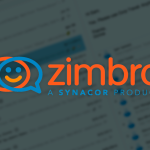Microsoft ha publicado un nuevo aviso de vulnerabilidades clasificada como crítica
El equipo de Ciberseguridad de Netglobalis informa que Microsoft ha publicado un nuevo aviso de vulnerabilidades, clasificada como crítica, esta falla afecta a los sistemas operativos de Windows.
Un atacante podría aprovechar algunas de estas vulnerabilidades para tomar el control de un sistema afectado.
Por tanto, se recomienda a los usuarios y administradores a revisar las siguientes afectaciones y aplicar las actualizaciones necesarias.
SEVERIDAD CRITICA
- CVE-2022-22047: Vulnerabilidad de día cero. Permite realizar elevación de privilegios.
- CVE-2022-22038: Vulnerabilidad de ejecución remota de código en Remote Procedure Call Runtime.
- CVE-2022-22039: Vulnerabilidad de ejecución remota de código en el Windows Network File System.
- CVE-2022-22029: Vulnerabilidad de ejecución remota de código en el Windows Network File System.
- CVE-2022-30221: Vulnerabilidad de ejecución remota de código Windows Graphics Component.
Resumen
El Equipo de Respuesta ante Incidentes de Seguridad Informática, CSIRT de Gobierno, comparte información sobre múltiples nuevas vulnerabilidades dadas a conocer por Microsoft como parte de su tradicional Update Tuesday de julio.
Productos afectados
- Azure Site Recovery VMWare to Azure
- Azure Storage Blobs client library for .NET
- Azure Storage Blobs client library for Java
- Azure Storage Blobs client library for Python
- Azure Storage Queues client library for .NET
- Azure Storage Queues client library for Python
- Microsoft 365 Apps for Enterprise for 32-bit Systems
- Microsoft 365 Apps for Enterprise for 64-bit Systems
- Microsoft Defender for Endpoint for Linux
- Microsoft Lync Server 2013 CU10
- Microsoft Office 2013 RT Service Pack 1
- Microsoft Office 2013 Service Pack 1 (32-bit editions)
- Microsoft Office 2013 Service Pack 1 (64-bit editions)
- Microsoft Office 2016 (32-bit edition)
- Microsoft Office 2016 (64-bit edition)
- Microsoft Office 2019 for 32-bit editions
- Microsoft Office 2019 for 64-bit editions
- Microsoft Office LTSC 2021 for 32-bit editions
- Microsoft Office LTSC 2021 for 64-bit editions
- Remote Desktop client for Windows Desktop
- Skype for Business Server 2015 CU12
- Skype for Business Server 2019 CU6
- Windows 10 for 32-bit Systems
- Windows 10 for x64-based Systems
- Windows 10 Version 1607 for 32-bit Systems
- Windows 10 Version 1607 for x64-based Systems
- Windows 10 Version 1809 for 32-bit Systems
- Windows 10 Version 1809 for ARM64-based Systems
- Windows 10 Version 1809 for x64-based Systems
- Windows 10 Version 20H2 for 32-bit Systems
- Windows 10 Version 20H2 for ARM64-based Systems
- Windows 10 Version 20H2 for x64-based Systems
- Windows 10 Version 21H1 for 32-bit Systems
- Windows 10 Version 21H1 for ARM64-based Systems
- Windows 10 Version 21H1 for x64-based Systems
- Windows 10 Version 21H2 for 32-bit Systems
- Windows 10 Version 21H2 for ARM64-based Systems
- Windows 10 Version 21H2 for x64-based Systems
- Windows 11 for ARM64-based Systems
- Windows 11 for x64-based Systems
- Windows 7 for 32-bit Systems Service Pack 1
- Windows 7 for x64-based Systems Service Pack 1
- Windows 8.1 for 32-bit systems
- Windows 8.1 for x64-based systems
- Windows RT 8.1
- Windows Server 2008 for 32-bit Systems Service Pack 2
- Windows Server 2008 for 32-bit Systems Service Pack 2 (Server Core installation)
- Windows Server 2008 for x64-based Systems Service Pack 2
- Windows Server 2008 for x64-based Systems Service Pack 2 (Server Core installation)
- Windows Server 2008 R2 for x64-based Systems Service Pack 1
- Windows Server 2008 R2 for x64-based Systems Service Pack 1 (Server Core installation)
- Windows Server 2012
- Windows Server 2012 (Server Core installation)
- Windows Server 2012 R2
- Windows Server 2012 R2 (Server Core installation)
- Windows Server 2016
- Windows Server 2016 (Server Core installation)
- Windows Server 2019
- Windows Server 2019 (Server Core installation)
- Windows Server 2022
- Windows Server 2022 (Server Core installation)
- Windows Server, version 20H2 (Server Core Installation)
Mitigación:
Instalar las respectivas actualizaciones entregadas por el proveedor.
Fuentes:






